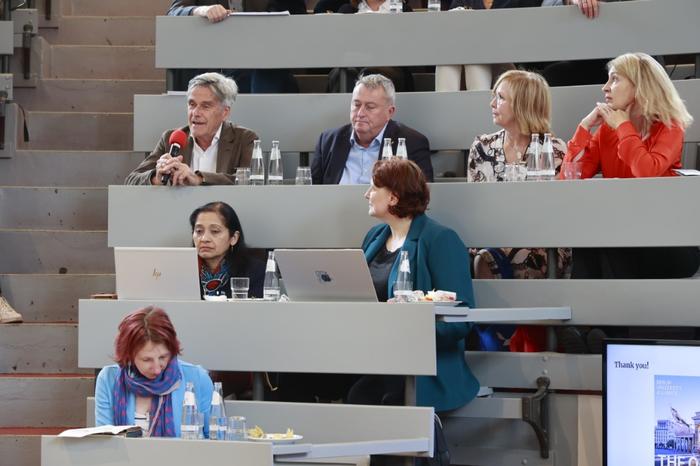Professorships at the Berlin University Alliance
The Berlin University Alliance offers an internationally competitive, transparent path to professorships. Whether you’re an early-career researcher or an established academic, BUA institutions provide strong support, clear expectations and outstanding research networks.
Before pursuing a professorship at the Berlin University Alliance, ensure you have already attained eligibility for professorship (Berufungsfähigkeit). This typically includes first, 2-4 years of postdoctoral research and teaching experience, followed by a junior professorship or other academic leadership accomplishments, such as completion of a Habilitation.
What Are the Requirements for Professorship?
- Proven Research Ability: A strong publication record and success in securing third-party funding
- Teaching Experience: Documented teaching skills
- Leadership & Collaboration: Proven ability to lead projects and contribute to academic communities
What Is a Habilitation?
In Germany, the Habilitation is a traditional postdoctoral qualification demonstrating the ability to teach and conduct research independently at the professorial level. While still common, especially in senior roles, BUA institutions offer tenure-track alternatives that do not require a Habilitation, making pathways more accessible for international scholars.
BUA Job Portal
The BUA job portal is an excellent starting point for exploring professorship opportunities in Berlin, providing a clear and convenient overview of open calls across its universities and Charité all in one place.
Appointment Processes & Contacts
For more detailed information, each BUA university provides its own appointment pages, which outline the specific steps and resources available to help you succeed in your academic career in Berlin.
Appointment processes and contacts:
Visiting Professorships
Visiting opportunities for professors and lecturers at Berlin universities are often advertised publicly. The Berlin University Alliance routinely advertises individual guest professorship opportunities on its job portal. Alternatively, it is possible to directly contact the university faculty where you would like to stay to inquire about the possibility for applying for visiting funds, for example:
- DAAD Funding for International Guest Professors and Lecturers (German only). Only host institutions can apply for this funding on behalf of visiting academics.
Scholars at Risk
The Berlin University Alliance has hosted hundreds of scholars at risk through various channels, including the Philipp Schwartz Initiative of the Alexander von Humboldt Foundation and the Einstein Guest Researcher Program for Academic Freedom, among other internal and external funding schemes. Collectively, the universities participate in national and international advocacy for academic freedom, including sustained involvement in the Scholars at Risk Network.
If you are a scholar at risk, the best course of action is to reach out directly to the university most aligned with your field for tailored guidance on eligibility and support:
- Freie Universität Berlin
- Contact: Stefan Rummel, Tel.: +49 30 838-73402,
- Humboldt-Universität zu Berlin
- Contact: Neda Soltani, Welcome Centre, Unter den Linden 6, 10099 Berlin or int.refugees@hu-berlin.de, Tel.: +49 30 2093 20087
- Technische Universität Berlin
- Charité – Universitätsmedizin Berlin: International Affairs
- Contact: international@charite.de
The Philipp Schwartz Initiative, launched in 2015 by the Alexander von Humboldt Foundation and the German Federal Foreign Office, offers fellowships to researchers who face serious personal threats in their home countries. Interested researchers cannot apply directly but must be nominated by eligible German institutions; those seeking placement should approach a potential host university to explore nomination possibilities.
The Einstein Guest Researcher Program, funded by the Einstein Foundation Berlin, provides two forms of support to researchers whose academic freedom is restricted or who face threats to their safety. To apply, prospective fellows must secure a host at one of the eligible Berlin institutions, including those in the Berlin University Alliance. Applications are submitted through the host university, not directly to the Einstein Foundation.

